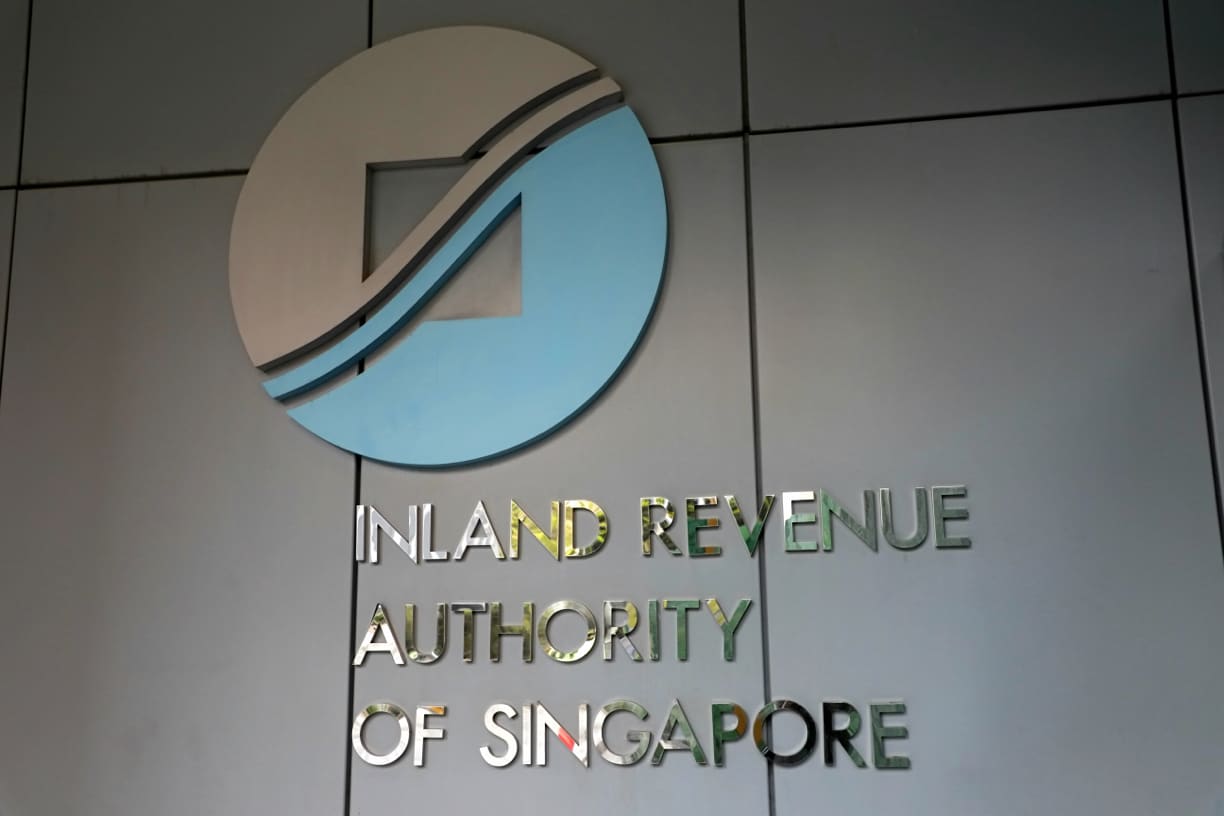The Big Read: Work from anywhere in the world? Easier said than done as regulations, policies play catch-up
SINGAPORE — When Mr Jamin McKee found out that his father’s health was worsening, the Singapore-based New Zealander asked his then-employer in September last year if he could return to his home country to spend time with his family and work remotely from there.

As borders reopen and families reunite, employees who have gotten used to remote work over the past months are starting to contemplate the possibility of doing that while overseas.
- As borders reopen and families reunite, employees who have gotten used to remote work over the past months are starting to contemplate the possibility of doing that while overseas
- This has been made possible by the accelerated digitalisation across almost all industries, which enabled employees to work away from the office during the pandemic
- However, bigger questions have to be resolved if longer-term overseas remote work is to become commonplace
- In particular, some laws and policies governing areas such as taxation, work benefits, company-employee relationships and foreign manpower would require a rethink
- The Ministry of Manpower is studying the implications and opportunities of remote work, and reviewing whether any legislative changes are necessary
SINGAPORE — When Mr Jamin McKee found out that his father’s health was worsening, the Singapore-based New Zealander asked his then-employer in September last year if he could return to his home country to spend time with his family and work remotely from there.
The Employment Pass (EP) holder, who has been trying to gain permanent resident (PR) status for the past few years, said that his request to work remotely was rejected. The firm wanted him to take no-pay leave instead.
“They wouldn’t let me (leave Singapore) for extended periods of time, even though my work could be completely done remotely,” said the 25-year-old account manager.
Taking no pay leave was not an option for him as he would have to be in New Zealand for the medium to long-term period — too long for him to go without drawing a salary.
He thus quit his job after a year to join a Singapore-based tech media firm in November last year. His new company is flexible in allowing him to travel and work from overseas, as long as he gets his own health insurance back in New Zealand.
Due to the uncertainties in travel at the start of this year owing to the Covid-19 pandemic, it was only in May that he returned to New Zealand, where he stayed for four and a half months until his father’s condition improved.
“I did a quarantine in New Zealand for 14 days and (my company) told me to just work through it,” he said. “Because of the flexibility I was able to go home during the pandemic.”
He added that his work was project-based, and so his new company did not see him working overseas as an issue as long as he could meet the deadlines.
As borders reopen and families reunite, employees who have gotten used to remote work over the past months are starting to contemplate the possibility of doing that while overseas. TODAY reported earlier this week that some Singapore firms are looking at allowing their employees to work temporarily from overseas for up to six months.
This has been made possible by the accelerated digitalisation across almost all industries, which enabled employees to work away from the office during the pandemic.
For Singaporean investor Ray Chong, Thailand will be his “ base” from next month, as he plans to fly there and work remotely for about three to four weeks.
Mr Chong works for a venture capital firm based in China, which also has a Singapore entity. However, his entire team is based in China and so it makes no difference where he is working as he would have to meet them virtually anyway, said the 33-year-old.
Indeed, as many countries come to terms with living with Covid-19 and begin to reopen their borders — despite the fits and starts as new virus strains emerge— the world is once again becoming their oyster for people such as Mr McKee and Mr Chong.
The pandemic, now into its second year, has drastically altered the work landscape, shattering the traditional office-centric structures, and making work from home — in fact, work from anywhere — an increasingly favoured arrangement for white-collar employees and employers.
For Mr McKee, after returning to Singapore, he decided to take a month-long leisure trip to Germany when the vaccinated travel lane (VTL) between the two countries opened in September. While in Germany, he was working through much of the trip.
He is currently in South Korea to visit his girlfriend but is serving a 14-day quarantine and working remotely in a hotel room, as he did not enter the country via the VTL.
Despite spending about five and a half months overseas this year, he has only taken 18 days of leave.

As for Mr Chong, his planned trip to Thailand stems from his pent-up desire to travel. As more VTLs opened up, he felt that he could integrate work and travel.
He will be flying there alone — lugging his laptop — and plans to work on weekdays while sight-seeing on weekends. He hopes to visit different places such as Bangkok, Phuket and Chiang Mai.
Like Mr McKee, Mr Chong has agreed to use his own travel insurance and his health and safety in Thailand will not be covered by insurance from his company.
“Technically it makes no difference, I can just (do my work) anywhere I want,” he said.
COVID-19 A GAME CHANGER
Mr Chong is half right.
On paper at least, many employees can uproot themselves and relocate to anywhere in the world with an internet connection, and still do the same work for their companies. However, such an arrangement, especially if it is for the longer term, can be complex for companies and policymakers.
As working beyond one’s local borders becomes increasingly attractive and feasible, Ms Dion Thai, a global employer services tax partner from professional services firm Deloitte Singapore, said that in the past two years, her firm has seen “a lot more queries on the tax implications of remote work arrangements”.
The pandemic has driven more organisations to implement remote work arrangements, she noted, as they may have employees who are stranded in overseas locations and cannot return because of border restrictions, or that the organisations see these remote arrangements as a way to retain and attract talent in the post-pandemic future of work.
However, given that such arrangements are still very much a work in progress, some questions remain to be answered: To what extent is remote work overseas a viable option? Would it be possible to work remotely abroad not just for a few months, but indefinitely?
Speaking to TODAY, several human resource (HR) experts reiterated that while overseas remote work can be carried out by employees for short stints without too many obstacles, some important issues need to be addressed if such arrangement for the longer term is to be commonplace.
Factors such as taxation and labour laws mean that prolonging the period where one works remotely overseas for a Singapore firm will come with complications.
Mr Chris Woo, tax leader of accountancy firm PwC Singapore, pointed out that one cannot expect to stay in a foreign country indefinitely without resident obligations, such as paying taxes and observance of labour laws, coming into play sooner or later.
“It’s like asking someone to stay in (a) house but they don’t pay rent. You have to assume that the authorities (in the host country) will catch up (with you) as they get more hungry for taxes,” he said.
He added that this is why visitors to a certain country are generally allowed to be there only for a limited period of time and have to be issued work or employment passes, or visas if they wish to extend their stay.
For example, in Singapore, foreign visitors are typically permitted a duration of stay between 14 and 30 days, but can extend their stay to no more than 89 days in general, according to the Immigration and Checkpoints Authority and Ministry of Foreign Affairs websites.
The idea of remote work is not new: For years, companies have been engaging freelancers based overseas or outsourcing certain functions, including call centre and technology support services, to workers abroad.
However, Covid-19 has been a game changer as it forced industries to digitalise most, if not all, of their operations. As a result, remote work is now viable for a lot more job functions — prompting more workers to embrace it for various reasons.
Experts noted that such workers generally fall into two groups: Those who are going overseas for short periods for the sake of travelling, and others who are returning to their home countries to be with their families.
Veteran HR practitioner Carmen Wee said that for the first group, as long as their work can be done from anywhere, there are generally fewer issues as they are overseas on short stints that can be seen as “work during holidays”.

This means that the firm and the employee can come to an internal agreement on the terms of employment. For instance, medical and hospitalisation benefits may not be available in an overseas setting, and employees will have to agree to be responsible for their own insurance.
Mr Derrick Teo, group CEO of the Elitez Group of Companies, which provides human-resources-related consultancy services, added: “As long as the employer can still continue to manage the KPI (key performance indicators) or the deliverables (of the employee), then theoretically, it doesn't matter where they work from.”
However, it is with the second group of remote workers — those who are planning to stay overseas for the longer term — where various complications will arise.
Ms Low Peck Kem, president of the Singapore Human Resources Institute, said that in such a situation, it is “wise for both employer and employee to be clear on the terms and conditions of employment”.
These extend to issues such as tax and labour legislation, employment benefits and Central Provident Fund (CPF) contributions, and even cybersecurity and data laws.
On a broader front, countries will also need to grapple with the implications for their foreign manpower policies, among other things.
TAX AND LABOUR LAWS
Staying in a country for an extended period of time would invariably lead a person to be subject to its tax and labour laws, said tax and employment experts.
However, the lines are not always clearly drawn and depend on many different factors, such as whether the employee still has to pay taxes in Singapore while working remotely overseas.
Mr Mark Addy, a partner at KPMG here, said that in general, whenever a Singapore company has employees working in foreign countries, it “runs the risk of being liable for corporate income taxes in those countries by virtue of creating a ‘permanent establishment’ or taxable presence there”.
Mr Vikna Rajah, who heads the tax, trust and private client practices department at law firm Rajah & Tann, said that a Singapore citizen or Singapore PR may still be considered a resident here if the person spends at least 183 days in Singapore or if his or her absence from the island is “considered temporary”.
Does this mean that if a Singapore citizen or PR stays overseas for a long period of time, the person will not be taxable here? Not necessarily true, said Deloitte’s Ms Thai.
“Where an individual is based in Singapore and his or her duties require him or her to travel outside Singapore, the time spent outside Singapore would be considered incidental to his or her Singapore employment, and the remuneration derived therefrom would be considered Singapore sourced and taxable in Singapore,” she said.
Hence, in the context of remote work, if an individual is employed by a company based in Singapore for employment but now wishes to work from an overseas location while visiting friends or families for example, the individual will “continue to be subject to Singapore tax on any income derived from such employment”, she added.
So, would such a remote worker in this instance be considered also a resident employee of the foreign country he or she is working in?
Mr Woo from PwC Singapore said that there are various factors that determine if a Singaporean who works remotely is considered to be “legally working” in another country and thus, under the jurisdiction’s tax and labour laws.
For example, it matters if a country has a tax treaty with Singapore, which broadly sets out rules on whether they will be liable for personal tax.
The number of days that people can stay in the country before they are liable to be taxed varies from country to country, and depends on the treaties.
One such treaty is the Avoidance of Double Taxation Agreement (DTA), which according to the Ministry of Finance website, helps to minimise the double taxation of income arising from cross-border business activities.
According to the Inland Revenue Authority of Singapore’s (Iras) website, Singapore has DTAs with nearly 100 jurisdictions.
Mr Rajah said that these agreements help to “ascertain the allocation of the taxing rights of the income he or she earns” between Singapore and the country the person is working remotely at.
Nevertheless, these treaties have an “exemption threshold”, said Ms Thai. Beyond the threshold, which differs depending on country, the person will have to pay tax to both jurisdictions.
“The employee who undertakes a remote work arrangement may end up in a situation where he or she is subject to tax in both the country of employment and the country where he or she is working remotely, and there will be situations where double tax cannot be mitigated or avoided,” she said.
However, the experts noted that during Covid-19, exceptions had been granted.
Ms Thai said that many tax authorities around the world had granted special tax concessions for individuals who were stranded as border restrictions are imposed around world, and therefore had to temporarily work remotely in places other than their usual working location.
“However, as the pandemic has been ongoing for close to two years now, we observe that most countries have stopped or scaled back on tax concessions for such remote work arrangements,” she said.
For example, tax concessions had been given to Singaporeans and Singapore PRs who were based overseas but returned here to work remotely, but these ended on June 30 this year.

There are also labour laws in foreign jurisdictions that may come into play.
Ms Charmaine Neo, the head of employment practice and investigations practice at WMH Law Corporation, gave the hypothetical example of a Singaporean employee employed by a Singapore company posted to work in the United Kingdom.
“Your contract is under Singapore law… but if you work in the UK they may have different working hours, and even things like different minimum wage laws,” she said.
“Even though your (employment) contract may be perfectly legal under Singapore law, the fact that you are working in the UK itself could also render you or your company to potential exposure to liabilities for laws in that country.”
KPMG’s Mr Addy said that to mitigate such risks, companies need to ensure that they “plan accordingly and put in place proper policies and guidelines for employees wishing to take advantage of remote work arrangements”.
One way of doing so is to ensure that the company has an official legal presence in the overseas country that the employee is being deployed to.
Mr Woo said that options include employing the worker under a satellite branch of the office when they are there, or transferring the worker to a sister company based in that country.
Should these two options be unavailable, Mr Teo from Elitez Group of Companies said that firms can also register the employee under an employment agency or “professional payroll companies” which can act as a proxy for the Singapore employer.
In these cases, the employee will be considered a full tax resident of the foreign jurisdiction and be solely under the tax and labour laws there.
Mr Sivakumar Saravan, senior partner and head of tax at professional services firm Crowe Singapore, noted that requirements also vary among different industries.
“This licensing issue is more critical for industries with heavily regulated activities, such as legal, fund management and financial advisory, where there are strict licensing requirements; the laws in most jurisdictions prohibit remote employees to carry out such regulated activities, unless the hiring companies have the necessary business permits,” he said.
EMPLOYMENT BENEFITS AND CPF CONTRIBUTIONS
HR experts whom TODAY spoke to said that by and large, it would be cumbersome for a firm to provide those working remotely overseas with the full slew of benefits granted to its Singapore-based workers.
These benefits include restrictions on working hours, healthcare benefits and insurance.
Ms Wee, the HR practitioner, said that for most short-term remote working stints, companies and employees come to a common understanding that there will be no benefits provided.
This will be tricky, however, when overseas work is done on a longer term.
“If it is a permanent (overseas) role, the HR contract has to be written according to the (foreign country’s) legislation… it has to be tied to the social security pension and welfare benefits of the country,” she said.
As this is a cumbersome process and better done by an entity that is situated in the foreign country, Ms Wee said that a “fundamental” decision has to be made as to whether the job “has to be done overseas”.
One solution that may be tempting to employers is to recast their permanent staff working remotely as freelancers, where the worker will not receive any benefits and will be doing project-based work.
Mr Teo said that while this may seem like an easy way out, it can backfire.
“(Employers) may not have the assurance that this person will always be able to work for them every workday, because freelancing by definition is project-based,” he said.
He added that as freelancers, some people may be concerned about an unstable income, which may fluctuate according to the number of projects on their plate.
Economist Walter Theseira, from the Singapore University of Social Sciences, said that while it is true that companies do not need to provide benefits to freelancers, the latter, in turn, can also “work 'at will' and can generally quit their work with little or no notice, and owe considerably fewer duties to the firm”.
“My sense of it is that if the employer has the same expectations for the cross-border worker, in terms of control and oversight, as for a full-time worker located in Singapore, then it would be an employment arrangement (as opposed to freelancing), notwithstanding attempts to define it otherwise,” said Associate Professor Theseira.
When it comes to CPF contributions, the experts interviewed said there is no need for employees working remotely to do so.
The CPF Board website states that CPF contributions "are not payable on wages given to your employee who is employed to work overseas”.
However, Assoc Prof Theseira noted that the CPF Act defines an employee who is liable to contribute as someone who is “employed in Singapore”.
“The relevant question is what 'employed in Singapore' means,” added the former Nominated Member of Parliament. “Does it mean that the employment must be physically carried out in Singapore, or does it mean that the contract of service and work is governed by Singapore law and for a Singapore-based employer, or both?”
Ms Neo from WMH Law Corporation noted that while CPF is “generally not payable for employees working overseas”, the pandemic has shown that employers and employees are moving towards more flexible working arrangements that may encompass remote working.
“I definitely agree that the authorities should look further into whether the current legislation supports such a framework to give employers and employees more clarity,” she said.

CYBERSECURITY AND DATA LAWS
Cybersecurity experts said that for those working remotely overseas, they should be aware of the media laws of the country that they are working in. For example, the data that they store in their devices could be at the mercy of the authorities there.
Mr Vivek Chudgar, vice-president for Mandiant Consulting for Asia Pacific and Japan, said countries with tighter data sensitivity laws may be able to access devices without the consent of the owner, especially when employees are travelling in and out of the country.
“If your company is dealing with data that is very sensitive, you may have some data on your device which you may not want to let the (foreign) government see,” he said.
He added that to avoid such situations, some companies issue a “freshly configured” laptop with minimal data to employees who will be working remotely. Before their employees make a trip out of the country, they are to save their files online and clear their devices.
Mr Vivek noted, however, that the chances of an employee’s data being seized by overseas authorities are slim, and most countries will not resort to this unless it is deemed that the person poses a security threat.
The experts said that using Wi-Fi networks overseas while being constantly on the move may also increase the chances of a device being hacked.
Mr Terence Siau, vice-president of strategic alliances at cybersecurity firm ABPGroup, said that the risk of a device being hacked while surfing the web in Singapore or overseas is “generally the same”, as both constitute the online space which is largely borderless.
However, the fluid nature of overseas work means that employees may be logging into more Wi-Fi networks in a greater variety of locations such as cafes, hotels and overseas offices, and this may expose them to more risks in general.
He added that companies need to ensure that the necessary safeguards, such as a virtual private network and an updated anti-virus software, are all set up.
However, the less obvious threat to online safety is the potential for a device to be physically stolen or misplaced while travelling.
“If your laptop is stolen, will your data be encrypted (such that the device cannot be accessed)? These are additional precautions that you have to take,” he said.

FOREIGN MANPOWER POLICIES
The prevalence of remote working due to the pandemic has also given rise to some thorny questions, especially amid the perennial debate of local-versus-foreign manpower.
After all, remote work is sought not just by Singaporeans who want to live overseas while working for a Singapore company — but also by Singapore-based employers themselves.
These firms now face fewer obstacles to hiring foreign workers remotely given that much of the workforce in many parts of the world has adapted to working from home. And many firms may be tempted to do so, especially when it is cheaper to pay these workers compared with their Singaporean counterparts.
This could have ramifications in terms of how companies view the Government's foreign worker quota, which is calculated based on the number of Singapore citizens and PRs a firm hires.
Ms Neo from WMH Law Corporation said that foreign workers who work remotely would not count as part of a company's foreign worker quota, since “the rationale for the foreign worker quota is to regulate the number of foreign workers in Singapore”.
Agreeing, Assoc Prof Theseira said that employment laws “generally do not address the issue of employers purchasing services from foreign providers”.
This is not a new phenomenon, he noted, with firms buying services from foreign call centres and technology support services. The issue that Singapore, as with the world at large, faces now is that the practice is becoming more widespread with the pandemic.
“What has changed is that the scope and scale of services that can be effectively delivered remotely have expanded due to advancements in technology, meaning more jobs and roles are potentially offshorable than before,” Assoc Prof Theseira added.
In October last year, Yio Chu Kang Member of Parliament Yip Hon Weng filed a parliamentary question on how the Singapore workforce will remain competitive with remote workers in the region willing to work for lower remuneration.
In her reply, then-Manpower Minister Josephine Teo said among other things that the authorities are studying the issue.
“As for whether labour laws need to be updated, this is an ongoing process that takes into account feedback from tripartite partners," she said. “We are also actively monitoring shifts in workplace practices due to remote working and sharing views with our international counterparts, to assess the need for policy intervention."
Responding to TODAY’s queries, a Ministry of Manpower (MOM) spokesman reiterated earlier this week that it “continues to study the implications and opportunities of remote work”.
“We will also review whether adjustments to legislation or regulations are necessary,” the spokesman added.
Experts cautioned that if left unchecked, this phenomenon could have repercussions for the Singapore workforce.
Said Mr Teo from the Elitez Group of Companies: “If this becomes an increasing trend, then the stark reality for many Singaporeans, especially the young graduates, is that they must be aware that they are no longer competing with other local workforce members… They're competing on a global scale.”
Ultimately, it could become a big enough issue that countries have to resolve together.
Assoc Prof Theseira said that it would require “not just examining employment laws, but also in examining cross-border trade in services”.
“If there is a serious issue, we need to be prepared to implement more regulations over cross-border services,” he said.













